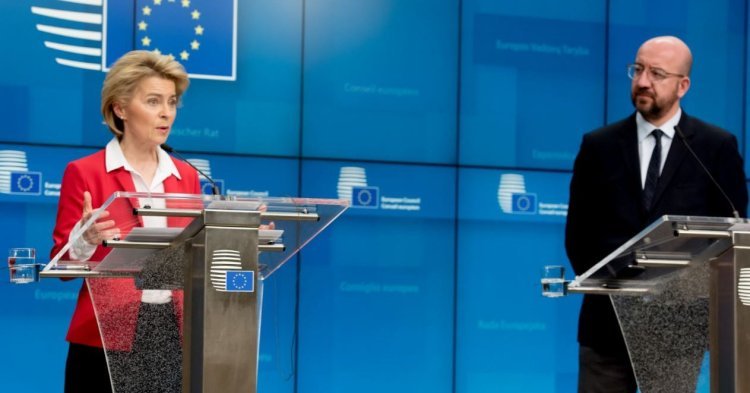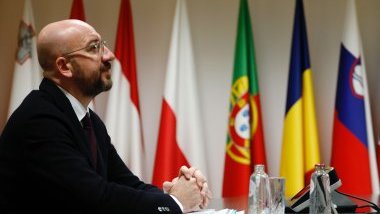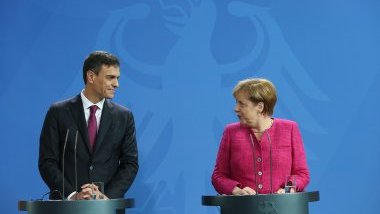“(…) the position was extremely serious. But what did that prove? Only that still more stringent measures should be applied.” (The Plague, Albert Camus, 1947, translated from the French by Stuart Gilbert, pp.150 1972)
In December 2019, several lung infection cases were recorded in China, in the Hubei province. Causing atypical pneumonia, this cousin of SARS (severe acute respiratory syndrome) or of MERS-Cov (Middle East respiratory syndrome-related coronavirus), the new coronavirus (named Covid-19) was spreading throughout China. It forced the Chinese government to decree the complete lockdown of entire cities from 23 January 2020, following a “public health emergency of international concern” launched by the World Health Organization (WHO).
Despite drastic measures imposed by China, the virus was spreading outside of the country on the Asian continent (Thailand, Philippines, Iran) and then reached Europe (Northern Italy in the third week of February), causing thousands of deaths worldwide. The situation is escalating. With the intense movement of people and the high degree of contamination, all European countries have ended up being affected, and the European Union has not been able to roll out an adapted response to a now inexorable pandemic.
Nature abhors a vacuum and this virus knows no borders. The European Union’s member states’ responses to this virus have been brutal and unilateral. Poland has closed its borders to foreigners, as have Slovakia and the Czech Republic. Germany has decided to only partially close its borders to France, Austria and Switzerland. In parallel, European States have been acting internally to apply the principle of social distancing which aims to cut contacts by tenfold and, in doing so, curb the virus. Italy and Spain have decreed a national state of emergency. France adopted the same principles a few days later.
The measures that have been adopted are drastic: moving about without a valid reason provided by law is prohibited; bars, clubs, schools and universities are closed; only food stores are open. Within a week, Europe was put in a glass case. Stock markets have collapsed, forcing the states to foresee recovery plans, which has not triggered any strong reactions from the European Union. Even worse, the European Summit on 10 March did not allow for a concerted action of the Member States’ lockdown measures. On 17 March, following an emergency meeting and a proposal from the European Commission, the EU27 approved the complete closing of the Union’s borders for a month.
In the meantime, the Eurogroup and the Commission have approved different national measures to support economic recovery, by allowing non-compliance with the Stability and Growth Pact and exempting national companies from giving to State aid. Despite these exceptional mechanisms infringing the principles stated in the EU treaties, the European Union’s shortcomings and inaction have been conspicuous. Within a week, a virus originating from a market in Wuhan, China, has made the European Union’s cornerstones totter.
The European Union’s late responses have once again revealed its institutions’ dysfunction and the impossibility for States to settle issues that go beyond the national framework by themselves, such as an epidemic containment.
In the face of this extraordinary event, numerous politicians and journalists have not hesitated in announcing that this marks the end of the Union, as well as the return of borders and of the nation-state, which they claim to be the only shields warding off the dangers caused by deregulated globalisation. Yet, if we look at the situation through a different angle, it is worth noting that the decisions taken unilaterally by States one after the other did not contain the epidemic. Quite the contrary: the absence of coordination between the States articulated by a supranational management of the virus has favoured its spread.
Since then, rather than sounding the death knell and announcing the end of the European Union, couldn’t the coronavirus crisis, unique in contemporary history, be the necessary evil for further European integration? Couldn’t it be a turning point in the European ideal as expressed by the Union’s Founding Fathers in the aftermath of World War II?
However, despite its undeniable successes (the promotion of rule of law, human rights, the single currency, freedom of movement, jurisdictional system, AIRBUS, the absence of war between member states and so on), the European Union has failed in its goal to create a democratic political organisation which transcends individual national interests, in view of safeguarding peace. Perceived as being a technocratic and economic institution, based on liberal dogma and opaqueness, the European Union has not managed to arouse complete support from its citizens. The ratification of the Lisbon Treaty – despite the rejection of the Treaty Establishing a Constitution for Europe (TCE) by referendum in France and the Netherlands in 2005 – has formed a wound between the Union and its people that hasn’t appeared to heal.
Yet, although the current health and economic crisis has once again demonstrated the need for an ever-closer European Union, a change in method(s) must be also triggered. A new political method must replace the functionalist method, which has prevailed since 1957. Joschka Fischer’s speech in front of the European Parliament in 1999 is more relevant to today than ever. The former German Foreign Minister questioned the effectiveness of the Monnet method and was aware of member states’ limits in the globalisation era. He attempted to show the importance of a political integration in order to tackle the challenges of globalisation and, most importantly, to assure “preventive crisis management”.
However, the political integration that Joschka Fischer wanted, the integration that the Founding Fathers such as Altiero Spinelli longed for, and that which Jacques Delors formulated as a “federation of nation-states” which is based on a constitutional text ruling the balanced relationship within a “the European, national and regional triangle” will only be possible if the European Union manages to prevent such crises.
In its current state, the Union is unable to coordinate national crisis management policies whether they concern health, economic or even security matters. The EU is only ex-post when it comes to approving the decisions adopted by member states, whereas it should be first in line when faced with global issues. The coronavirus crisis is the most acute example of this.
In medical jargon, “crisis” denotes the moment when a pathology reaches its peak, putting the body in mortal danger. The Greek language, however, defines “crisis” as the decision that is taken to deal with the situation. In other words, a crisis is the moment when a radical decision is needed so as to avoid the death of the sick body. Let’s not bury our heads in the sand: the European Union is a sick body. The coronavirus crisis and its consequences prove this a little more every day. Becoming the true driving force for the next decisions, disrupting its economic logic and coordinating national policies falls to the European Union, so that it can gain its citizens’ trust and engage in their next decisive political steps.





Follow the comments: |
|
